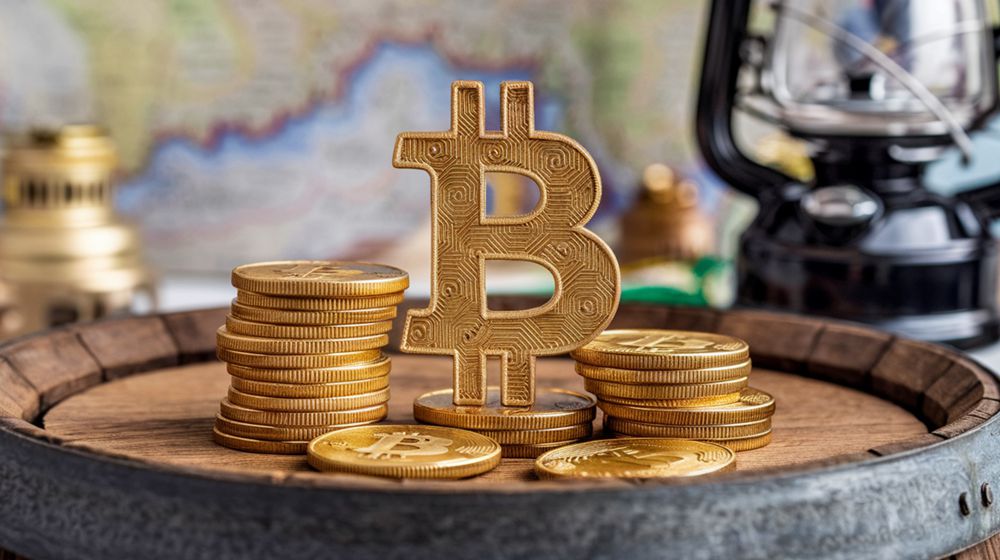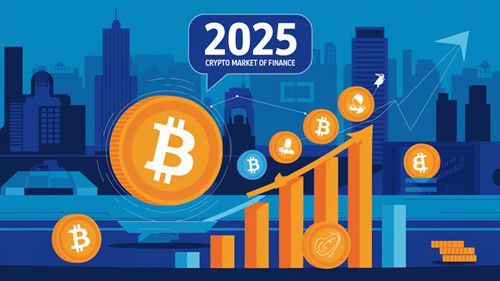MarketLens
Should the U.S. Establish a Strategic Bitcoin Reserve? Exploring the Risks and Rewards

The Strategic Bitcoin Reserve: A New Era of Financial Strategy?
A Bold Move for Economic Leverage
The concept of a Strategic Bitcoin Reserve is rooted in the idea of economic leverage. By holding a substantial amount of Bitcoin, the U.S. could exert influence over the cryptocurrency market, potentially discouraging other countries from using Bitcoin as a substitute for the dollar. This could reinforce the dollar’s status as the world’s reserve currency, a position that has been challenged by the rise of digital currencies.
- Initial Stockpile: The U.S. government could start with approximately 200,000 Bitcoins, valued at around $21 billion, seized from criminal activities. This would represent about 2.2% of Bitcoin’s total supply.
- Expansion Plans: There is a proposal to purchase an additional 200,000 Bitcoins annually for five years, aiming for a total stockpile of one million Bitcoins, or about 5% of the total global supply.
Economic Benefits and Strategic Advantages
Proponents of the reserve argue that it could offer several economic benefits:
- Deficit Reduction: Holding a significant quantity of Bitcoin could help reduce the U.S. deficit without raising taxes. As Bitcoin appreciates over time, it could provide a buffer against inflation and enhance the U.S. position in the global economy.
- Strengthening the Dollar: A strong Bitcoin reserve could potentially strengthen the U.S. dollar and provide leverage against foreign adversaries like China and Russia.
- Diversification: Incorporating Bitcoin into state reserves could reduce reliance on traditional assets, creating a more diversified investment portfolio.
The Risks and Criticisms
Despite the potential benefits, the idea of a Strategic Bitcoin Reserve is not without its critics. Economists and financial experts have raised several concerns:
- Volatility: Bitcoin is known for its high volatility, with prices capable of dramatic fluctuations. This poses a risk to the stability of the reserve and could lead to significant financial losses.
- Lack of Intrinsic Value: Critics argue that Bitcoin lacks intrinsic value, making it a speculative asset rather than a stable reserve.
- Cybersecurity Threats: The security of crypto assets is a major concern, with the potential for cyber attacks on government-held Bitcoin wallets.
- Regulatory Challenges: Establishing a Bitcoin reserve may require significant legislative changes, as current regulations do not allow the Federal Reserve to own Bitcoin.
What Does This Mean for the Crypto Market?
Market Reaction and Growth
The announcement of a potential U.S. Bitcoin reserve has already had a significant impact on the crypto market. Bitcoin surged past $107,000, driven by investor optimism about a potentially friendlier regulatory environment under the Trump administration. Since the November 2024 elections, Bitcoin has increased by over 50%, and the total cryptocurrency market value has nearly doubled, reaching a record over $3.8 trillion.
Global Context and Competition
The U.S. is not alone in exploring the idea of a Bitcoin reserve. Other countries, including China and the UK, also possess significant Bitcoin holdings. Russian President Vladimir Putin has noted a global shift towards alternative assets like cryptocurrencies. Establishing a strategic reserve could position the U.S. as a leader in the cryptocurrency space, enhancing its economic influence as other nations explore similar reserves.
Political Support and Skepticism
The Trump administration is expected to embrace cryptocurrencies, with plans to appoint pro-crypto officials to regulatory bodies. However, analysts caution that the implementation of a strategic Bitcoin reserve would take time and requires careful consideration of its consequences. While the proposal could drive market enthusiasm, it also faces hurdles in its realization.
Top Bitcoin ETFs to Watch Out For
As the crypto market evolves, Bitcoin ETFs (Exchange-Traded Funds) have emerged as a popular investment vehicle, providing investors with exposure to Bitcoin without the need to directly purchase the cryptocurrency. Here are some top Bitcoin ETFs to keep an eye on:
- ProShares Bitcoin Strategy ETF (BITO): As one of the first Bitcoin ETFs approved in the U.S., BITO offers exposure to Bitcoin futures contracts. It has gained popularity among investors seeking to capitalize on Bitcoin’s price movements.
- Valkyrie Bitcoin Strategy ETF (BTF): Similar to BITO, this ETF invests in Bitcoin futures contracts. It aims to provide investors with a cost-effective way to gain exposure to Bitcoin’s price volatility.
- Grayscale Bitcoin Trust (GBTC): While not an ETF, GBTC is a popular investment vehicle that allows investors to gain exposure to Bitcoin through a trust structure. It has been a pioneer in the crypto investment space and continues to attract significant interest.
- VanEck Bitcoin Strategy ETF (XBTF): This ETF offers exposure to Bitcoin futures and aims to provide investors with a diversified approach to Bitcoin investment.
- Invesco Bitcoin Strategy ETF (BITA): Another ETF focused on Bitcoin futures, BITA seeks to offer investors a way to participate in the Bitcoin market while managing risk through a diversified portfolio.
Conclusion: A Strategic Gamble or a Visionary Move?
The proposal for a U.S. Strategic Bitcoin Reserve is a bold and visionary move that could reshape the global cryptocurrency landscape. By holding a significant stake in Bitcoin, the U.S. could assert its dominance in the digital currency market and reinforce the dollar’s status as the world’s reserve currency. However, the risks associated with Bitcoin’s volatility, regulatory challenges, and cybersecurity threats cannot be ignored.
For individual investors, the rise of Bitcoin ETFs offers an accessible way to participate in the crypto market while managing risk. As the market continues to evolve, staying informed about the latest developments and investment opportunities is crucial.
In the end, whether the Strategic Bitcoin Reserve becomes a reality or remains a controversial proposal, it highlights the growing importance of digital currencies in the global financial system. As we move forward, the key will be balancing innovation with caution, ensuring that the benefits of cryptocurrency are harnessed while mitigating the risks.
For those interested in exploring the world of cryptocurrency investment, keeping an eye on the top Bitcoin ETFs and staying informed about regulatory developments will be essential. As always, diversification and risk management should remain at the forefront of any investment strategy.
Related Articles
Category
You may also like
No related articles available
Breaking News
View All →No topics available at the moment






